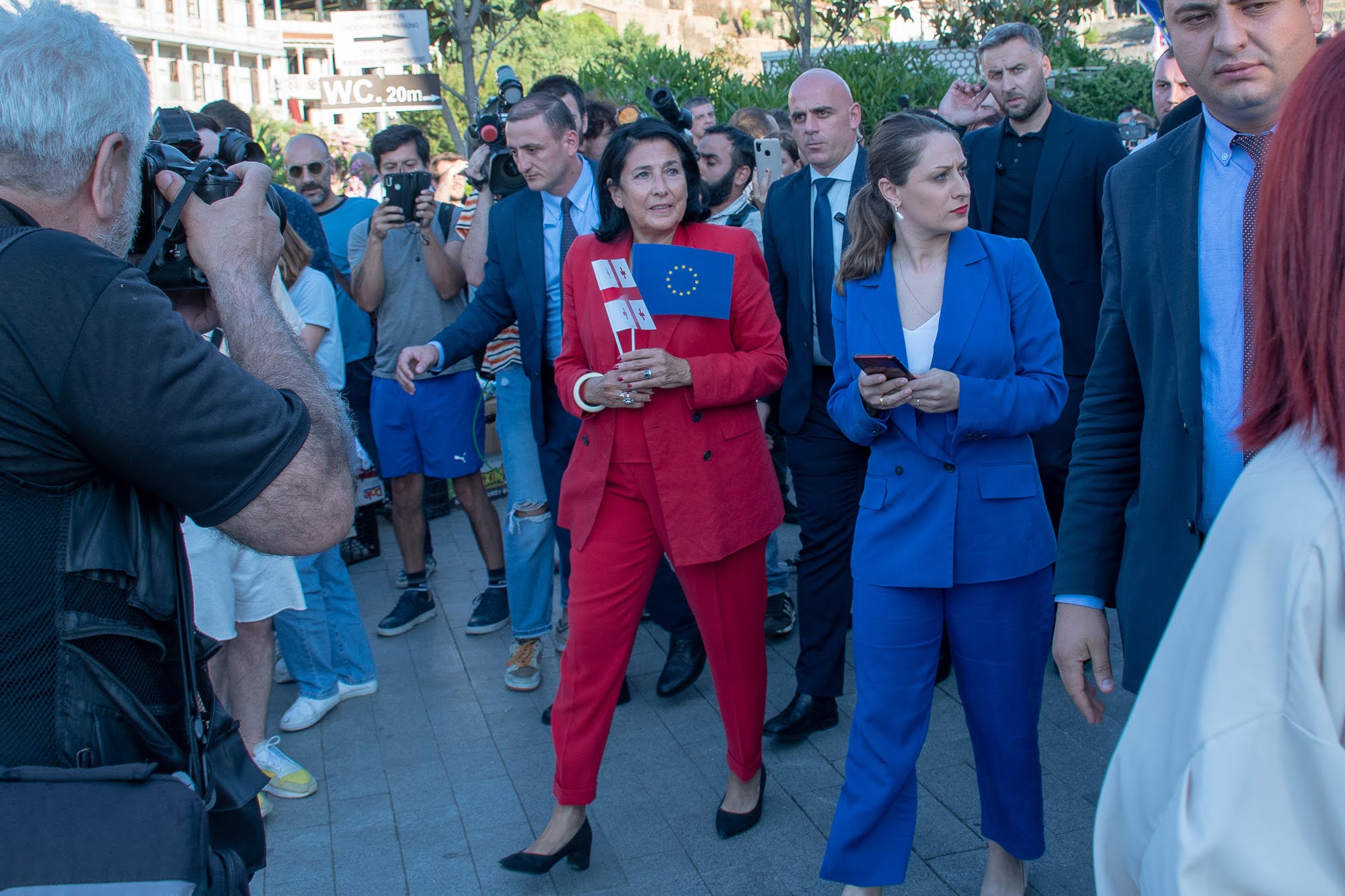Georgian Dream tightens grip as parliament sets presidential election date without opposition

After the disputed launch of Georgia’s parliament, Georgian Dream is moving swiftly to elect a successor to President Salome Zourabichvili, amidst uncertainty over whether she or the boycotting opposition will contest the presidential race.
On Tuesday, the Georgian Parliament scheduled 14 December as the date for the election of Georgia’s next president by an electoral college.
The resolution was approved by 80 Georgian Dream members, unopposed, as the ruling party entered its second day of parliamentary work without any opposition members present or recognising its legitimacy.
The same resolution scheduled the inauguration of the new president for 29 December.
Georgian Dream has yet to announce their chosen candidate for the post.
The new Georgian president will serve a five-year term as before, but for the first time, they will be elected by an electoral college instead of through a popular vote.
Under the 2017 constitutional amendments, the electoral college will consist of 300 members: 150 members of parliament, 21 members of the Supreme Council of the Autonomous Republic of Adjara, 20 members of the Supreme Council of the Autonomous Republic of Abkhazia — a government-in-exile since the early 1990s — and the rest from local government bodies, reflecting the representation established by the 2021 local elections.
Georgian Dream holds large majorities in local government structures as well as in parliament, which would allow them to appoint their own candidate.
Shalva Papuashvili, the reconfirmed parliamentary speaker, specified that the election would take place in parliament, with further rounds of voting, if necessary, held on the same day.
The vote will go to a second round if no candidate secures the support of two-thirds of the electors.
Bidzina Ivanishvili, Georgian Dream’s founder and honorary chair, is widely expected to put forward a candidate he perceives as more aligned and dependable than the incumbent, Salome Zourabichvili, or her predecessor, Giorgi Margvelashvili (2013–2018).
Both were elected with Georgian Dream’s support but later became highly critical of the party, accusing it of anti-democratic actions and jeopardising Georgia’s pro-Western foreign policy path.
On the day Georgian Dream inaugurated parliament, former ruling party ally Zourabichvili called it a ‘black Monday for Georgia’. Her plans remain unclear.
[Read more: Georgian Dream opens new parliament in apparent breach of constitution]
In early September, the Georgian President ‘didn’t rule out’ running for president again, though this appeared to hinge on a scenario where opposition groups won the 26 October parliamentary elections, which were marred by widespread reports of electoral fraud and violations.
In such a case, she envisioned herself playing a central role in steering Georgia’s foreign policy back onto its pro-Western path.

With those prospects now evidently discarded, Zourabichvili has avoided explicitly commenting on the ‘people’s parliament’ initiative proposed by the opposition group Strong Georgia, which could signal the emergence of parallel contested authorities in Georgia.
While challenging the October parliamentary election results in the Constitutional Court, Zourabichvili advocated instead for extending the powers of all government branches, including her own. However, Georgian Dream appears determined to remove her as quickly as possible, signalling what some critics describe as the end of the last public institution in the country outside their control.
‘First and foremost, the future president must be a patriot, honest, and independent of external forces. They must not act on the orders of representatives of foreign countries,’ Georgian Dream’s Secretary General Kakha Kaladze stated on Tuesday, echoing the party’s rhetoric about Georgia being under EU pressure while simultaneously pursuing formal membership.
None of the major opposition groups currently boycotting the new parliament, most of which have vowed to fully revoke their parliamentary lists, have clarified whether they will field a candidate to challenge Georgian Dream’s nominee — a prospect overshadowed by their mistrust in electoral neutrality of the electoral administration and lack of electoral reforms, and the lack of viable avenues to contest recent election results in court.









